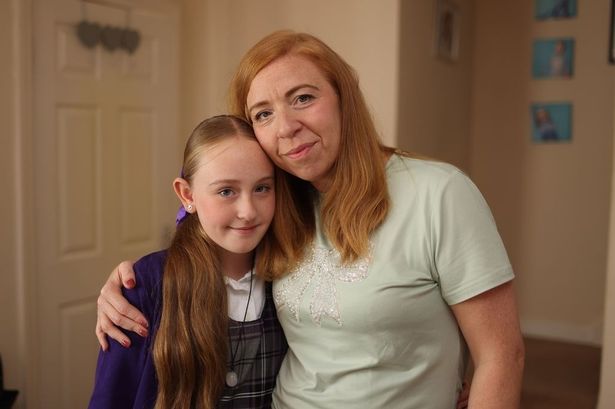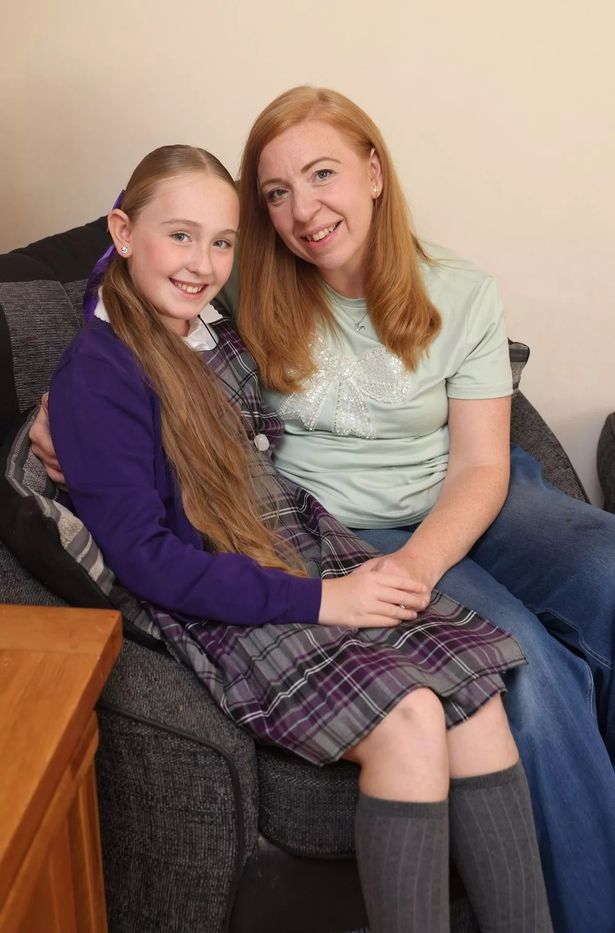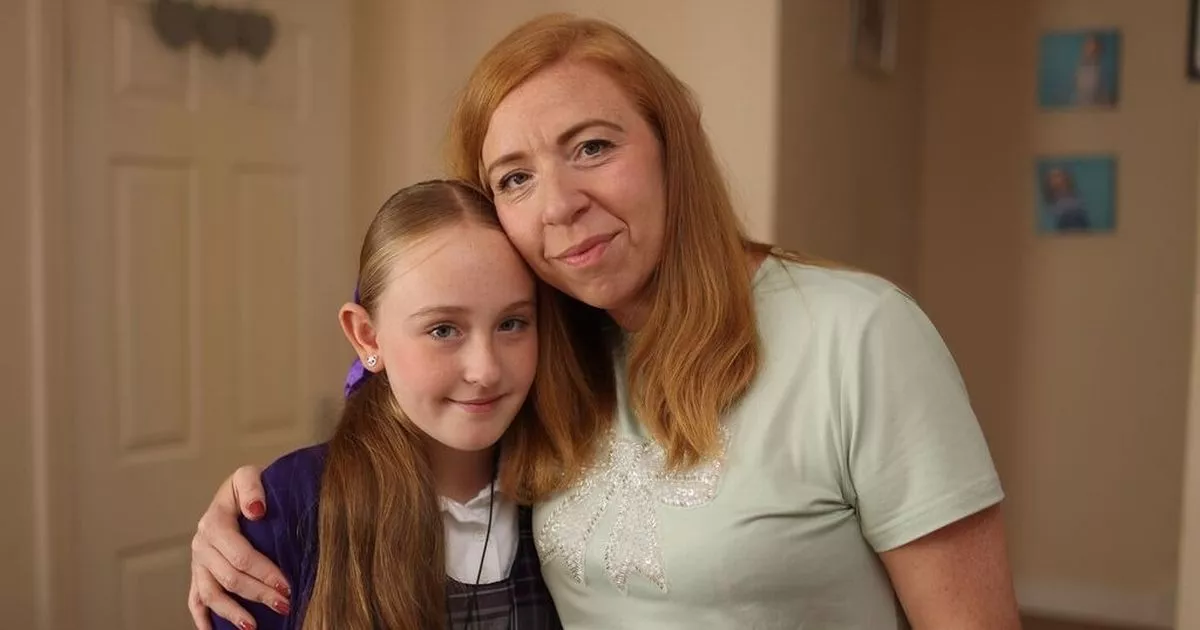“We want to get her back to our girl – we know it is possible” Vicky Carney and her daughter Ilia. (Image: Iain Watts )
Vicky Carney and her daughter Ilia. (Image: Iain Watts )
A 10-year-old girl who once loved to dance became unable to cross the threshold of her class after coming down with an illness which her parents struggled to understand.
When Ilia Carney, from Spital, began experiencing sudden mood swings, her parents initially suspected she was suffering from mental illness, reports the Liverpool Echo.
Her mum Vicky, 41, said: “In January last year, Ilia just point blank refused to go to school one day, which was really out of character.
“She turned hysterical and no matter how hard I tried, there was nothing I could do. There was literally no reason.
“She couldn’t tell me what was wrong, it was just this overwhelming feeling of anxiety.
“This began happening most days, and it got worse and worse. It turned into really horrific anxiety. She had pains. She’d get angry and these aggressive moods came with it.
“She couldn’t go dancing. She’d want to go, she’d turn up at her dance school, but she just couldn’t put one foot over the door. She had this overwhelming anxiety and rages we’d never seen before.
“We looked at autism, we looked at bipolar, any mental illness we could think of, we researched to find out what was happening to our little girl.”
But the reality of her condition was far more physical, as she was actually suffering from PANDAS Syndrome – a rare condition which causes people to develop obsessive-compulsive symptoms and dramatic mood swings due to a streptococcal infection.
Throughout 2024, Ilia attended multiple appointments as doctors struggled to work out the cause of her symptoms. When PANDAS Syndrome was brought up, the pieces of the puzzle fell into place.
 Vicky and Ilia Carney(Image: Iain Watts )
Vicky and Ilia Carney(Image: Iain Watts )
PANDAS (Paediatric Autoimmune Neuropsychiatric Disorders Associated with Streptococcal Infections) is a rare condition mainly affecting children, caused by a strep infection.
Sufferers may experience a variety of psychological symptoms such as anxiety, depression, sudden rages, sleeping problems, hyperactivity, and tics similar to Tourette syndrome.
The condition is notoriously difficult to diagnose, as these symptoms are more commonly associated with mental illness. Once detected, however, PANDAS is easily treated with a simple round of antibiotics.
Vicky said: “We’ve had loads of improvements, and a number of flare ups treated with antibiotics. She was on antibiotics for six weeks and the first she tried didn’t work.
“We shifted onto another one and then we saw a massive improvement. Because it’s an autoimmune disease, once she comes into contact with someone with strep, we have a dip and she has to go back on the antibiotics.”
After diagnosis, the family’s problems were not over, as NICE, the organisation which provides medical guidance to the NHS, currently says there is not enough research to produce formal medical guidelines for PANS and PANDAS in the UK.
As a result, Ilia is undergoing private treatment for her condition.
On October 9, landmarks across the country will light up green to raise awareness of PANS and PANDAS, and the urgent call for better help and support for patients.
Vicky, a mum-of-three, said: “What she’s been through is a lot for a little girl to deal with. It’s horrific to say the least and for a 10-year-old she needs support and therapy. That’s what the PANDAS charity is fighting for.
“Within our circle of family and friends, awareness is becoming bigger, but it’s really hard for children suffering because the world doesn’t know about it. They want to be seen and heard and not embarrassed by what they are going through.”
She added: “Ilia is a dancer. She had performed since she was three, a confident, bubbly little girl who wanted to be involved in everything. Since her diagnosis she hasn’t been able to perform onstage.
“She hasn’t been able to go to school most days. Before summer, she didn’t have a full week of school since February because her anxiety was that much.
“Before all this she was a happy, fun-loving kid who performed and socialised. She’s like a shadow of herself.
“Ilia early on asked me to share as much information as I could because she wants people to understand. She feels people understanding her illness makes it easier.
“We want to get as much help as we can and get her back to our girl. We know from other children it is possible.
“But funding everything ourselves is really difficult. It’s really hard because not only are we facing a battle of our daughter being really ill, we’re facing a battle with the NHS to try and get support.”

